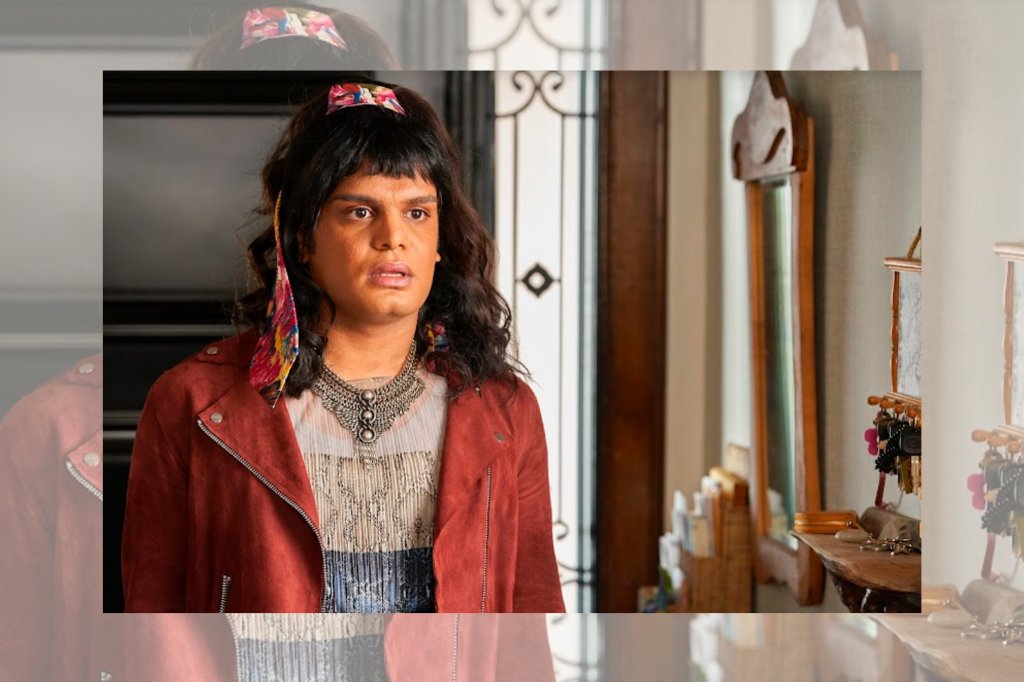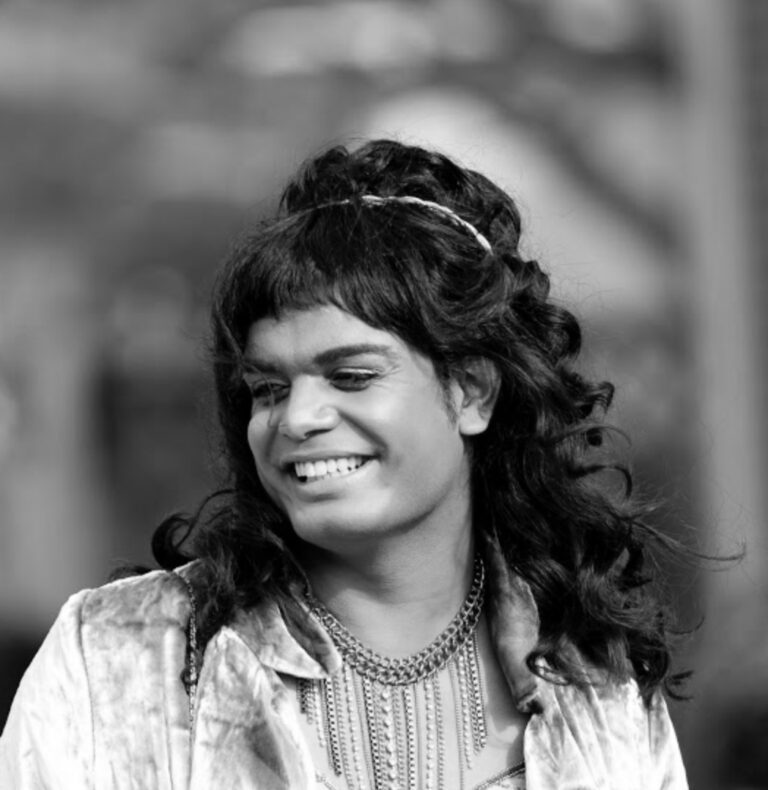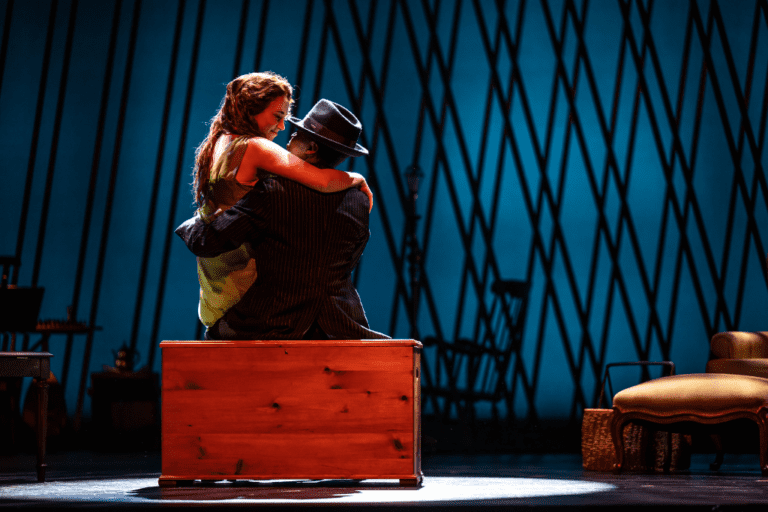Finding the Liminal in Sort Of
When we’re about to embark on a big journey, a change, a major transformation — I wonder if we’re ever ready?
Like, if you feel you’re about to enter an unfamiliar place, or a level of depth you’ve never accessed in yourself before, how can you prepare for that?
I’m wondering these things because I’ve been asked a few times now if I felt ready to embark on the journey of co-creating, co-producing, co-showrunning and acting in a TV series when the opportunity came about.
At the time SORT OF was greenlit, I was twenty-five and trying to disappear. I had just written and performed in a solo show called Kitne Saare Laloo Yahan Pey Hain that ran for a few nights at the Next Stage Theatre Festival. Through those performances, I was experimenting with my exit from the world of acting. I was charmed by the idea of having a “classic theatre experience” (which, in Toronto, I think means creating/performing a one-person show in a small venue independently produced by yourself or with some trusted friends), and then I personally wanted to exit. And I wanted to exit because I have a very complicated relationship to visibility that was starting to feel overwhelming to me.
I have a hard time being looked at in public.
I have a hard time being looked at in public. And as a trans-feminine, brown-skinned person, I have a hyper-sharp awareness of when I am being looked at in public, all the time. So by the time I was rehearsing for the solo show, it had been about six years of frequent-ish acting on stages — which is a next-level kind of agony for someone who struggles with being visible — combined with sixteen years of living life as a human who kind of fell in love with being invisible or going mostly unnoticed in public life, and often in personal life too. (For anyone keeping count, the first eight years of my life weren’t so fraught with existential questions around visibility.) As I was performing the solo show — which in many ways, is an examination of what it means to exist — I had had enough of being looked at.
Simultaneously, I was falling harder and harder in love with the work I was doing with organizations like Rivers of Hope, Story Planet, and the Paprika Festival. This was mostly behind-the-scenes program development or workshop facilitation or administrative stuff — work that felt so intensely rewarding because of the people it served, and also work that let me be mostly invisible. I began to dream of a life that I could disappear into, and not in a bad way, but in an actually healing kind of way, to offset the years of agony I was putting myself through.
I began to dream of a life that I could disappear into.
I’ve used the word agony now twice to describe being looked at. I’ll unpack that a little bit here: when someone looks at me, I watch carefully where their eyes go. Are they looking at my face, my upper lip, my chin? Or my chest and shoulders? Or do they quickly glance down at my crotch? Are they examining my outfit and wondering why I chose to wear the things I did today? Are they wondering if non-binary is something I’m deeply connected to, or more of a political statement? Will they see the ways I’m expressing my gender and still misgender me? Literally, all these questions come into my head all at once when I sense that someone is looking at me, and this happens every time, everywhere, so it’s… a lot.
A week and a half after the Next Stage show closed, and I spent some real time dreaming of a quieter, less public life, SORT OF was greenlit.
And I was so not ready.
To be totally clear, I was not forced into creating a TV show inspired by some of my life events in which I would also play the lead character. I wanted this. I wanted this for so many reasons: an epic artistic challenge, learning new skills, deep and meaningful collaboration with artists I hadn’t worked with before, investigating my own relationship with leadership, creating something that might help people see themselves and that might change the world for them, money. And I was terrified for one really good reason: I have a hard time being looked at in public.
And to me, it is a really good reason, because making art is temporary, and living life is constant. I go to bed in my body at night, carrying the experiences of my day with me, not in the art-world I helped to create.
So, what do I do?
SORT OF started streaming in Canada on CBC Gem, CBC’s streaming service, on October 5, and comes to CBC TV in Canada on November 9. Teasers of the show played during commercials for the Olympics. We just had our world premiere in France, and went to TIFF in mid-September. HBO Max releases the show in the US later in the fall, and international networks have picked up and will be distributing SORT OF, too.
Making art is temporary, and living life is constant. I go to bed in my body at night, carrying the experiences of my day with me, not in the art-world I helped to create.
I am trying to be in pursuit of balance. Becoming so visible — more visible than I could have imagined in my wildest nightmares — means to me that my private time is sacred. That if I give myself to my work, I give myself to my rest, too. That if I give myself to public life, which is full of love and scrutiny, I give myself to my own thoughts and aloneness too. I dance the balance dance.
And I liberate myself in knowing that choices aren’t finite. I can do one thing for three years or three things for one year. I can be one thing for three years or three things for one year. I can say yes to something and not feel totally ready to take it on. I can say no to something I feel I was born to do. I can run towards the things that terrify me. I can hide. I can disappear and come back. I can be visible. I can flow through all of this.
And I embrace change. I don’t defy it; I don’t resist it. I surrender to it. It’s inevitable. It’s not so scary when I acknowledge the foreverness of change. And it’s not so difficult when I acknowledge change can bring me thrill and relief as well as sadness and regret. And in all the change that’s been happening around me, to me, in the change I’ve been living through professionally and personally, in the change I’ve been activating in my life, here’s something I learnt: we are the most full, the most powerful, the most secure, when we are the most open.
My big hope is that when people watch SORT OF, they experience a kind of openness that feels warm and easy, a kind of openness that serves as a guide through the foreverness of change. A kind of openness that stays.
The CBC and HBO Max original series SORT OF premiered in Canada on October 5th on CBC Gem, CBC’s streaming service. It will broadcast on CBC TV beginning November 9th at 9 p.m. (9:30 NT) with back-to-back episodes.









Comments